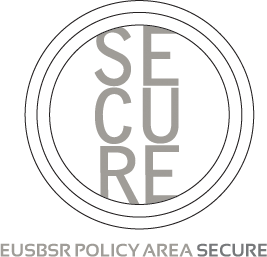13-17 May 2019, Geneva. Throughout the week, 4,000 people debated the most important achievements and challenges in the implementation of the UN Sendai Framework for Disaster Risk Reduction. More than 170 countries were represented at the Global Platform along with dozens of international and regional organisations from five continents. Over 150 different events took place.
Mami Mizutori, Special Representative of the UN Secretary-General for Disaster Risk Reduction, said in her welcoming address that the Global Platform would investigate and demonstrate how managing disaster risk and risk-development investments pay dividends in multiple sectors. The benefits – economic, social, psychological – resulting from the comprehensive implementation of risk reduction strategies were undoubtedly the main motive of the entire week of discussions in Geneva. There is broad evidence that DRR activities – including early warning systems, impact-based weather forecasting, and disaster preparedness – has already helped to reduce the possibility of large-scale loss of life from floods, storms and heat waves. The second leitmotif of discussions was the impact of climate change that brings severe risks for lives and for infrastructure. Up to 30% of the world’s total stock of manageable assets may be at risk due to climate change impacts. This statistic illustrates the scale of the threat to the global economy and the sustainability of societies. But, there is an optimistic message from the debates held during the Global Platform: the awareness of all these challenges and measures required to respond effectively to them is growing as well as the commitment of governments, international organisations, NGOs, local communities and individuals.
The culmination of the Platform was the release of the Global Assessment Report on Disaster Risk Reduction (GAR) 2019. “This report represents a major step towards a twenty-first-century view of risk and its reduction – an understanding that is imperative in our collective efforts to craft a sustainable future. We are fast approaching the point where we may not be able to mitigate or repair impacts from realised cascading and systemic risk, particularly those due to climate change. The urgency is evident. It demands much greater ambition around the speed and magnitude of the changes the global community needs to make; changes that must be proportionate to the scale of the threat. Above all, we cannot let inertia and short-sightedness impede action. As we have been reminded recently by Greta Thunberg (the Swedish climate change activist): “There are no grey areas when it comes to survival. Now we all have a choice. We can create transformational action that will safeguard the future living conditions for humankind, or we can continue with our business as usual and fail. That is up to you and me.” (From M. Mizutori’s Introduction). The GAR 2019 emphasises the importance of making responsible economic, financial and social choices on all levels of public management as well as the necessity of applying inclusive strategies in tackling the risks – nobody can be left behind. The report also highlights the key role of appropriate financial mechanisms to strengthen prevention measures and ensure that recovery efforts would lead to establishing a more resilient arrangement than those which were in place in the past.
Around 1/3 participants were representatives of the European states and various civil society organisations from all over Europe. Countries participating in the European Platform for DRR held their own consultation to discuss the most important aspects of their involvement in the implementation of the Sendai Framework. The European countries are well-advanced in providing the data to the Sendai Framework Monitor (3/4 of them have either completed reporting obligations or are in progress to do so). European Science and Technology Advisory Group presented a report titled “Socioeconomic and Data challenges. Disaster Risk Reduction in Europe”. There are several important conclusions in this report, but one seems of utmost importance: “While a majority of European countries show high competence and sustainable leadership in DRR, the topic is not always a high enough political priority to assure implementation and engagement at all levels. This context implies progresses in building knowledge and skills of the political establishment”.
 In the European states consultation, Janusz Gąciarz, the Senior Adviser for Civil Security at the CBSS Secretariat, presented the CBSS activities related to the facilitation of the implementation of the Sendai Framework, aiming at building macro-regional coherence of this process in the Baltic Sea Region, among them the CASCADE project ( Community Safety Action for Supporting Climate Adaptation and Development).
In the European states consultation, Janusz Gąciarz, the Senior Adviser for Civil Security at the CBSS Secretariat, presented the CBSS activities related to the facilitation of the implementation of the Sendai Framework, aiming at building macro-regional coherence of this process in the Baltic Sea Region, among them the CASCADE project ( Community Safety Action for Supporting Climate Adaptation and Development).
The UNDRR European Office informed that Portugal is taking over the chairmanship of the European Platform for DRR and will organise the next meeting of the Platform in the second semester of 2020.
Mami Mizutori, the Head of UNDRR, concluding the GPDRR said: “Little doubt that we must accelerate efforts to implement the Sendai Framework and that more countries must put in place national and local strategies by the 2020 deadline. The work of disaster risk reduction is vital to the overall success of the 2030 Agenda for Sustainable Development”
Important documents from the Global Platform:
Global Assessment Report on Disaster Risk Reduction (GAR) 2019
Sendai Framework Monitoring Snapshot, Europe & Central Asia, 2017 Data
Socioeconomic and data challenges: Disaster risk reduction in Europe
Opportunities to Integrate Disaster Reduction Risk and Climate Resilience into Sustainable Finance

